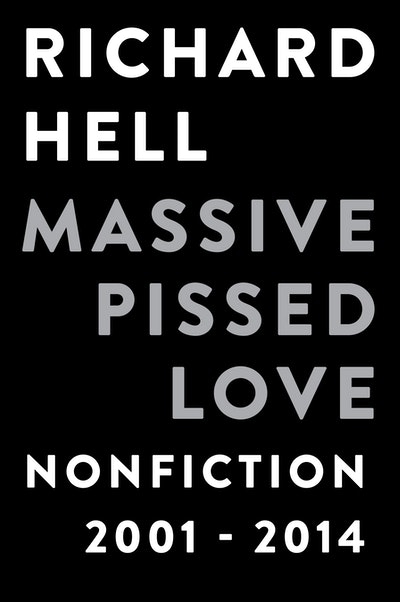Born Richard Meyers and raised in Lexington, Kentucky, Hell dropped out of high school at 16 and moved to New York in 1966 to make his way as a poet. Frustrated with the lack of interest in poetry among his peers, Hell started a band, The Neon Boys, with his best friend from high school Tom Verlaine. The Neon Boys evolved into Television, which Hell left shortly before they recorded their first album. He hooked with with Johnny Thunders and Jerry Nolan, who had just left the New York Dolls, to form the Heartbreakers—and Hell once again quit the group before recording a studio album (a live album featuring Hell is available, however). At this point, Hell founded the Voidoids, whose album “Blank Generation” propelled him to international fame and critical acclaim (the album was chosen by The New York Times as one of the ten best albums of the DECADE).
Hell went on to record two more albums, “Destiny Street” (1982) and “R.I.P.” (1994), before retiring from music (although he made an exception in 1992 to record “Dim Stars” with Thurston Moore and Steve Shelley of Sonic Youth and Don Fleming of Gumball).
Though he left the recording studio and concert stage behind, Hell has continued to make public appearances, reading his works in venues including Duke University, Durham; University of Kansas, Lawrence; Beyond Baroque and The Viper Room, LA; the Make-Out Room, San Francisco; Central Park’s Summerstage series, the St. Mark’s Poetry Project, The New School, KGB Bar, the Knitting Factory, and the NightLight series at the Drawing Center, NY; La Maroquinerie, Paris; the Second Coming Festival, Stockholm; and the Horse Hospital, London. Hell also starred in Susan Seidelman’s Smithereens—the first American independent film invited to Cannes.
For the last two decades, Hell’s work has appeared steadily in ever-ephermeral mediums: poems and notebooks in literary magazines and small-press books; essays in periodicals (for Spin and GQ to The Portable Lower East Side); interviews in pop-music magazines; as well as photos, drawings, and paintings on the walls of small New York City galleries.
If missed Hell then, Hot and Cold is your opportunity to catch him now. On these very pages, Hell’s multifarious work is finally gathered under one cover. The book is less a “collection” or an anthology, and more a seamless cohesion of the various mediums that ink on paper breeds..... Just like old times, Hell will blow your mind.



